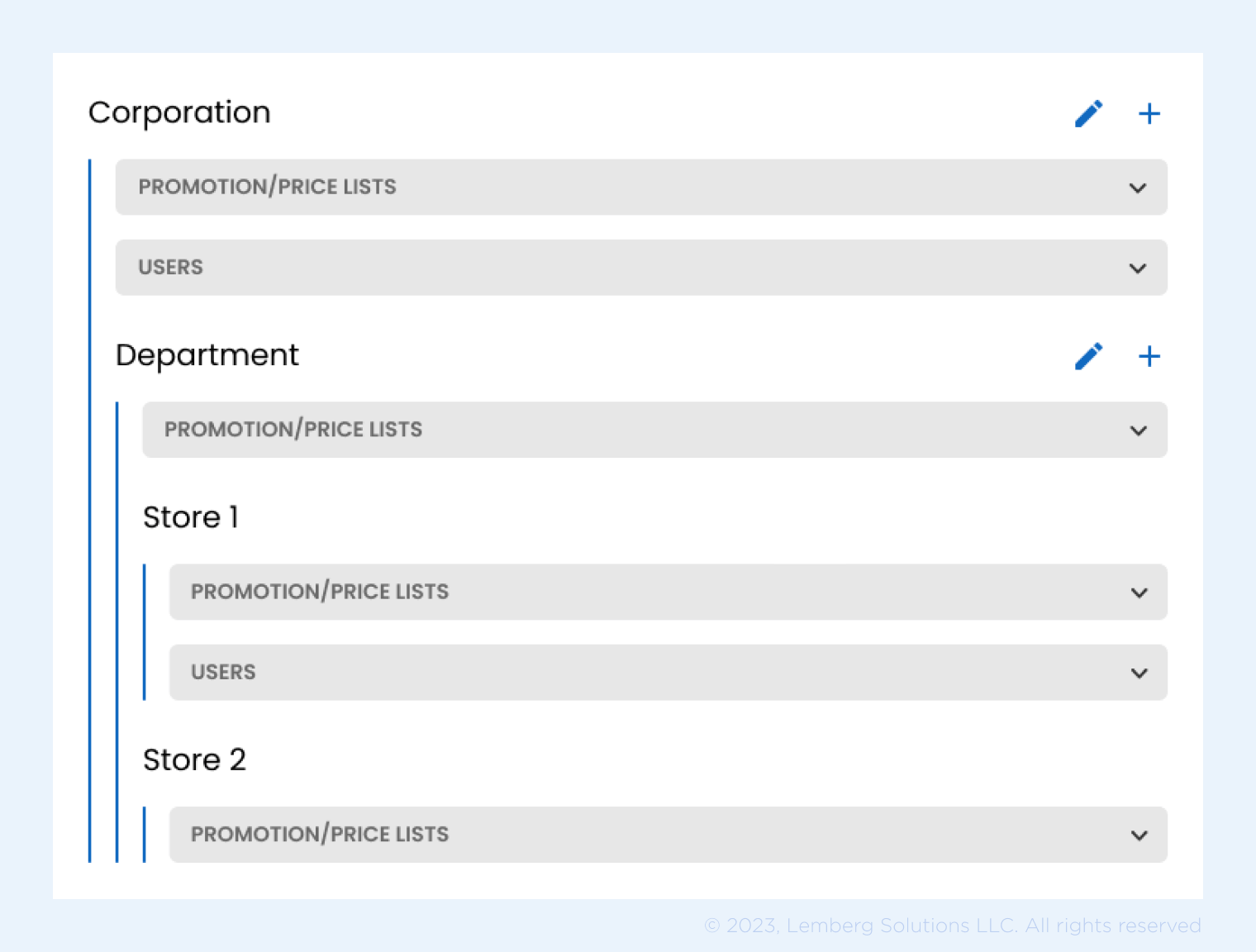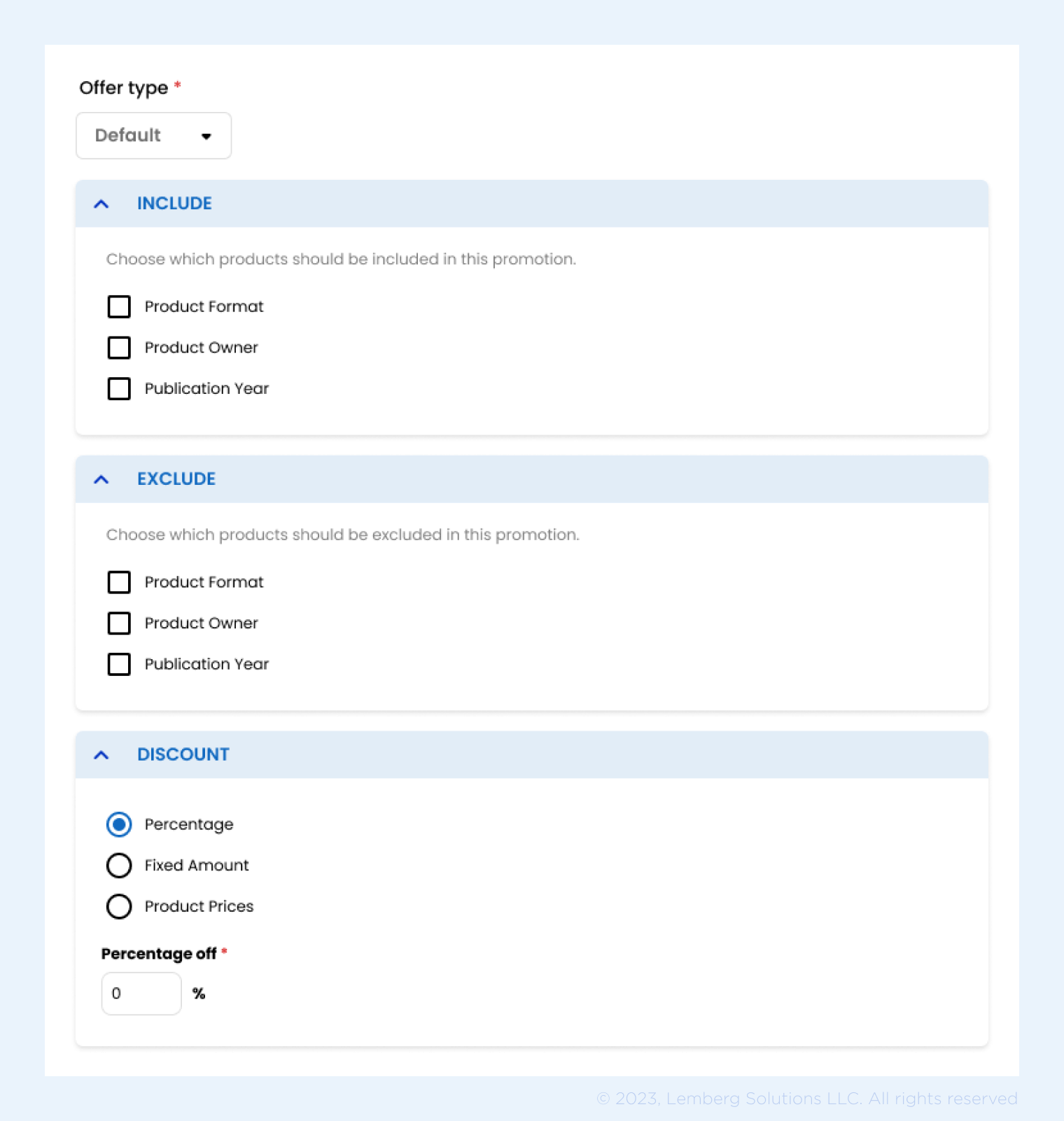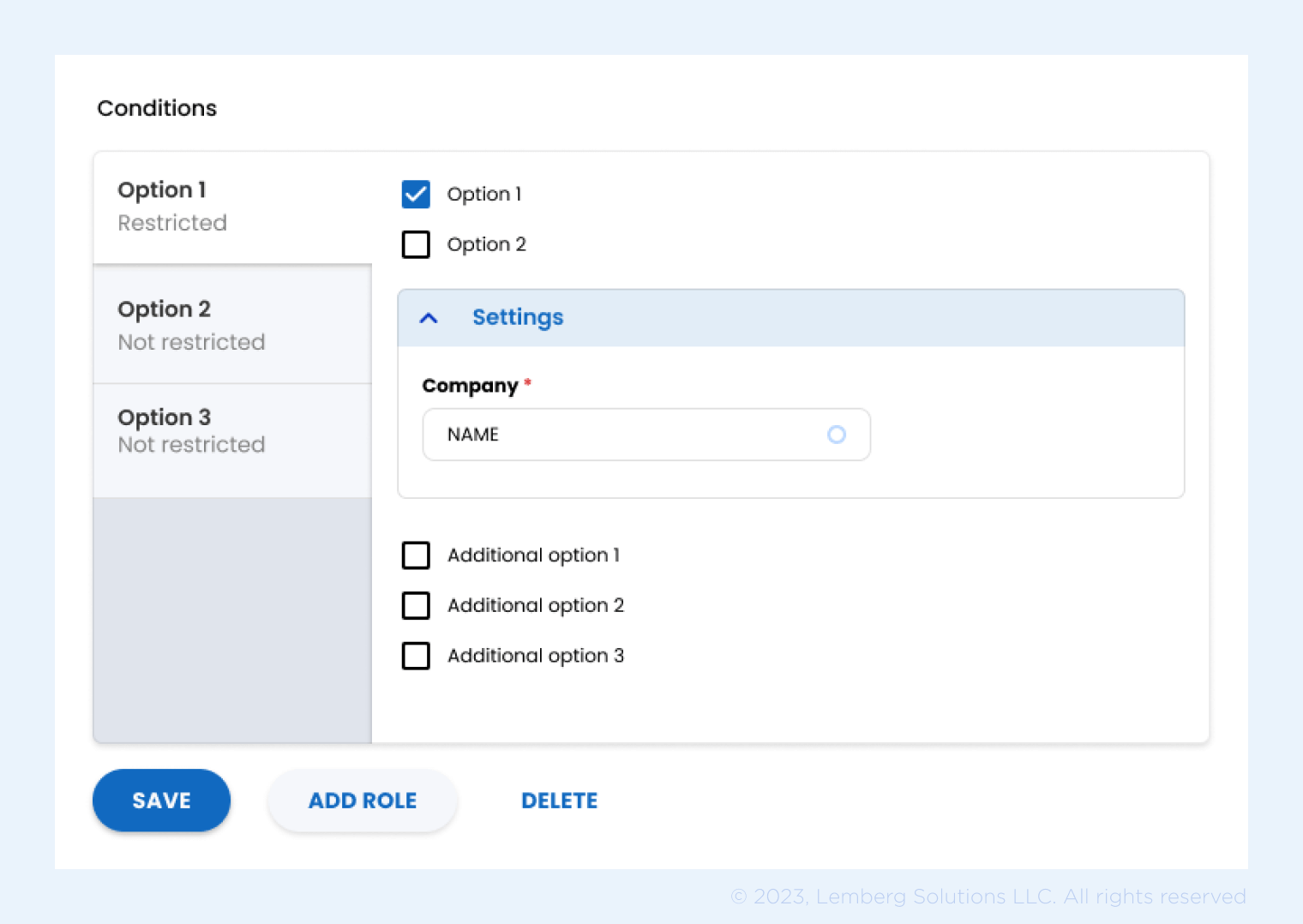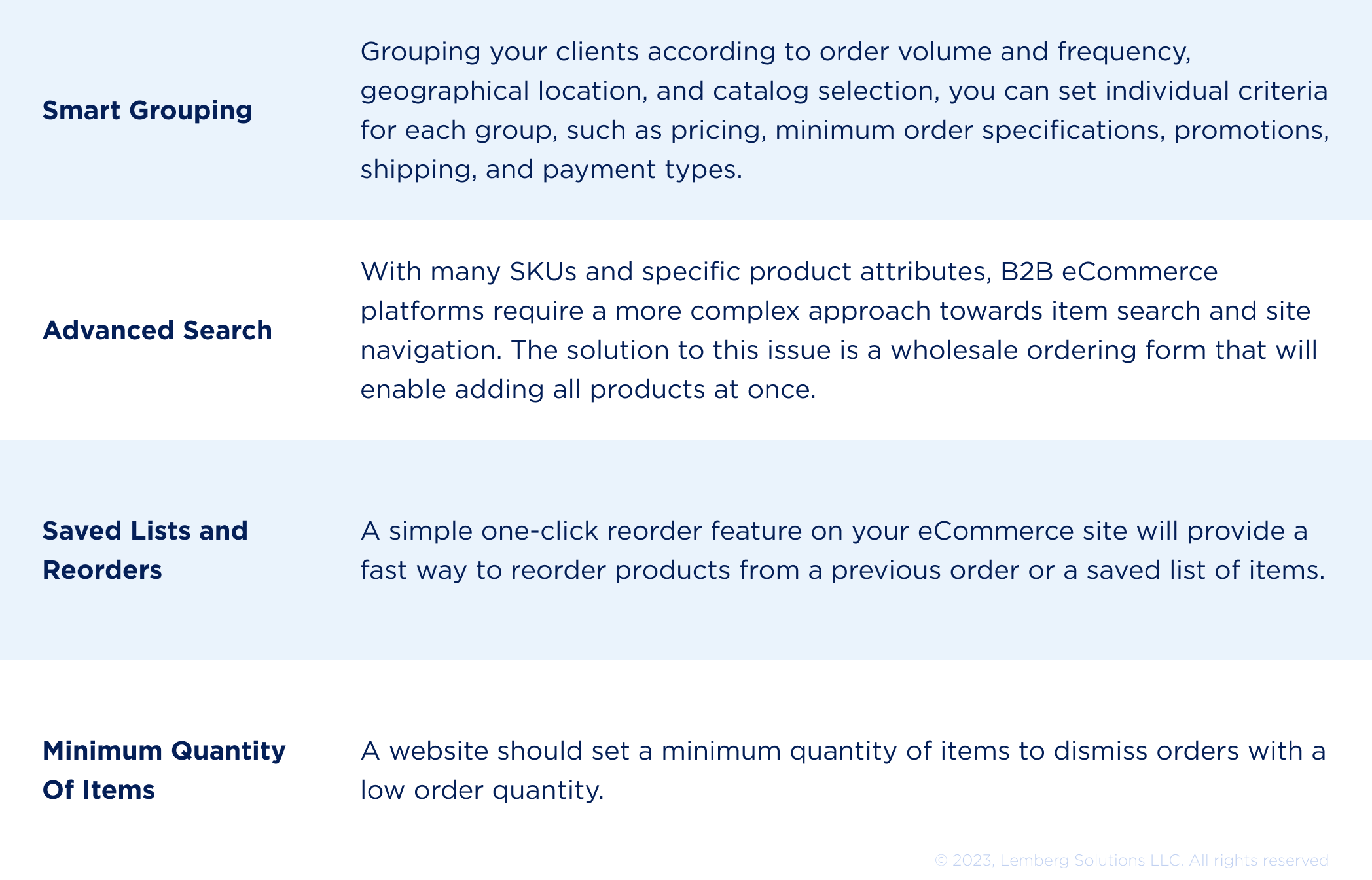In the B2C business model, consumers typically take spontaneous buying decisions to fulfill their immediate needs, but the B2B buyer journey is usually longer and more complex. B2B buyers have more complicated requirements. Multiple stakeholders decide whether to place an order, and the value of transactions is generally very high.
Not all of the ready-made eCommerce platforms have in their list the functionalities that will suit your B2B company. To provide a personalized customer experience for your B2B sector, you will need a custom eCommerce website.
Learn how to build a b2b eCommerce marketplace using the best development practices with Drupal Commerce.

What is a B2B Marketplace and How it Works?
A B2B marketplace is an eCommerce platform that gathers B2B business owners to enable trade within one digital environment. This way, B2B eCommerce reforms conventional sales processes, when multiple sellers can make deals online. Here are some motivating examples of the largest B2B eCommerce marketplaces:
Alibaba.com
Amazon Business
eWorldTrade
Global Sources
EC21
To build a successful B2B business, you must research your competitors and follow their best practices, which we discuss in this article.
The marketplace opportunities in B2B
Digital transformation changes the way businesses handle commerce. B2B transactions are shifting online, which means that without developing your business in a digital environment, you risk losing competitive advantage. Besides, providing services and products online equals a bigger target audience. Engaging leads on the web helps grow your customer base and expand the scope of your business. The bigger your business reach is, the easier it will be to boost your brand.
B2B eCommerce marketplaces get more popular among businesses since it's an easy way to go online. They also allow you to create a multifunctional online store and facilitate business process management.
Here are some benefits of B2B marketplaces for business management:
- Marketing tools ensure that you can promote your products or services within the marketplace.
- Inventory management tools help you manage in-store stock.
- Logistics management is easier within the marketplace since you can configure provider information, package tracking, and more.
- Finance management is much more painless with the help of digital tools available in marketplaces.
You can empower your B2B eCommerce marketplace with specialized analytics tools. Structuring your data ensures thorough decision-making and better strategies leading to higher performance rates of your employees.
Using a B2B eCommerce marketplace will be especially beneficial if your business requirements allow developing an organization in a fragmented market. Searching for suppliers and customers with an online B2B space will be much easier.
5 Types of B2B Marketplaces
When it comes to B2B marketplaces, there are several different types that businesses can choose from depending on their needs. Here are the most common types of B2B marketplaces you must consider while developing a custom marketplace:
- Product-oriented marketplaces: These focus on a specific product category, such as industrial equipment or office supplies. They allow businesses to easily search for and purchase products relevant to their industry or niche.
- Service-oriented marketplaces: This type of marketplace focuses on specific services, such as logistics or IT consulting. They provide businesses with a centralized site to find and hire service providers that meet their needs.
- Vertical marketplaces: These marketplaces are designed for a specific industry, such as healthcare or automotive. They provide businesses with a specialized platform to connect with other companies within their industry and access the necessary products and services.
- Hybrid marketplaces: This type combines elements of multiple types of B2B marketplaces, offering both products and services. They provide businesses with a one-stop shop for all of their purchasing demands.
- Private marketplaces: These are designed for businesses looking for a closed network, which is limited to a small group of companies allowed to join and interact within the marketplace.
Note that each type of B2B marketplace has its unique benefits and drawbacks, and you should carefully consider your target niche before developing one.

Why choose Drupal to power your B2B marketplace
There are plenty of ready-made solutions for creating Drupal Commerce marketplace, so you don't need to develop them from scratch. You can choose among plugins that customize your marketplace and save you development time. Using our Drupal Commerce marketplace tutorial, you can easily implement Drupal features for your platform.
Here are the main benefits of Drupal for B2B eCommerce:
- Drupal has a system for managing users, so you can easily create a hierarchy for companies. You can use specific Drupal 9 plugins for business growth and customization.
- Drupal 9 allows you to set up communication channels between companies. You can install the Private Messages module and organize your correspondence directly in Drupal CMS. You can also enable comments for orders.
- Payments and shipping configurations are available in Drupal 9 as well. You can choose batch shipping methods and even get a shipping discount.
- You can enable a feature that allows the purchase of specific products only after registration.
- Drupal 9 allows adding a feature that helps to check whether specific products are available for ordering.

Drupal Commerce 2.x
The eCommerce solution in our example will be designed on Drupal 9 and a new version of Commerce 2.x. It will allow us to extend and split the key features with existing modules contributed by the proactive Commerce community.
Built with customer experience as a first priority, Commerce 2.x is an advanced version with improved promotions UI, BOGO offers, and product category conditions.
Core functionalities of our B2B eCommerce marketplace [based on real example]
Even though the functionality of B2B marketplaces varies, some features are essential. Here are four core features that will make any B2B eCommerce platform convenient.
- Restricted access: Registration does a world of good to both admins and users. With registration, admins validate the company credentials. Users can get identified and therefore receive personal discounts and a structured hierarchy of their company where they can assign different departments and sub-departments.
This functionality is possible because of the core Drupal security system.
- Product import from multiple sources: Your B2B eCommerce marketplace will cooperate with multiple vendors. Each vendor may store the data about products in different formats.
To import all the formats, you can implement Drush commands for import products. Commands are triggered by cron on the server. Commands import products from files or do external API calls. All imported products are added to the queue and Drupal Commerce products entities are created via queue workers.
- Complex hierarchy system of the accounts: As a B2B eCommerce owner, you may not know in advance the exact number of department levels each company is going to have.
Accordingly, you need to develop a system, which allows users to have as many levels as possible. That's why software engineers must enable the possibility to register employees with different roles for each level, like a department manager or an administrator.
Using the Drupal taxonomy module, our team developed a hierarchy system where new companies can be registered by a regular user and then approved by the website administrator. Generally, Drupal taxonomy is used to classify website content with tags, like blog posts. Individual taxonomy items are known as terms, and a set of these terms compiles a vocabulary. Since the terms in vocabulary may be organized in a hierarchy, we use this module for a hierarchical system of company accounts.
Each company receives a personal page on the website, where the managers can see all its departments and perform actions according to their role. Implementing an intuitive and convenient interface ensures easy application of the necessary information about companies in a structured and clear manner.
- Personal discounts: As long as the company users are divided into several sub-departments, the admin may want to provide a special discount for a separate company or its department. Using Drupal promotions and custom plugins, we make it possible to provide a discount for one company or all departments according to specific rules.
Different discounts can be applied to products and users. Admin can include or exclude separate groups of products, and set the discount in percentage, fixed amount, or percentage of the product prices.
For a company, the admin can set a company ID, and promotions will be applied for the given company only, e.g., all products getting 10% off.

A custom plugin may also be created for the sub-departments. Admin can apply separate promotions to the sub-departments of the same company. For example, department A can obtain 10% off for all the items that cost more than $100, and department B will get 50% for the specific category of products.
A company manager can see all discounts, as well as the number of coupons used by their company and its departments.
Additional features to consider for your B2B eCommerce website
You may need some additional features for your Drupal marketplace platform to make it stand out. Here are some valid options:

What challenges should I be aware of when building a B2B marketplace?
Even though Drupal ensures numerous opportunities for B2B eCommerce marketplace solutions in terms of easy plugin integration, there are specific complications you should note.
Challenges related to Drupal use
- If you want to promote your personal offers to individual companies on your home page, you must purchase this opportunity.
- To organize your company's structure by introducing several divisions of your business, you need to implement the ability to add administrators for different departments. Such configuration allows organizing product management more efficiently.
- You should pay particular attention to the restricted access feature that determines who has access to a specific department.
- To add products imported from multiple sources, you must implement integrations with various enterprise resource planning (ERP) systems in advance. Systems hugely vary in terms of their data structure and implementations. Drupal facilitates writing such integrations if you know what main features you need and how they should work. You can build a basic structure and then organize it for each integration, depending on the data structure.
- The firms trade with each other by wholesaling products so you need to configure the functionality for the minimum order.
Although these challenges may complicate your project development, Drupal will immensely help you create a B2B marketplace.
Business challenges
On top of that, you should consider other challenges that are not covered by the Drupal CMS:
- Ecommerce marketplaces require more effort to build a competitive advantage than brick-and-mortar stores. Your potential customers compare products and services online. You need to ensure that your business remains visible to your target audience. Research the market where your business operates and make a competitor analysis to understand what strategy you need to form.
- The right eCommerce software makes your business organized and ensures a positive user experience. Since your business will grow over time, the technologies you use should support scaling. Ensure that the tech stack you choose is cost-efficient and covers your future needs. Take into account how the technology of your choice handles accessibility for your managers and reflects your business value.
- Don't neglect data security measures and train your employees on data safety. Take care of data storage security and incorporate software solutions that will protect customers' information. Always update your software since each update strengthens code protection against cyberattacks. Plan password changes with your employees since it increases your company's security as well.
- Customers hesitate buying from a company with vague return and refund policies. If your eCommerce marketplace doesn't offer any refund or return opportunity, your customer return will decrease. Ensure that your platform enables such policies to increase your sales.
If you consider all of the listed challenges at the early stages of your marketplace development, your business will run smoothly. You will prevent numerous pitfalls and manage them via preventive measures.
B2B marketplace requirements and best practices
Let's learn what it takes to create a thriving marketplace and use eCommerce at its full potential in B2B.
Simple payment procedures
Simplified payment transactions are one of the marketplace features customers value most of all. Before launching a B2B marketplace business, you should plan how to implement secure payments.
Some business marketplaces enable a pre-booking option. Other stick to request for proposal (RFP) practice. Think about the ways you want to process your bank transfers. With this in mind, you can reach out to a tech vendor, whom you will trust with your marketplace development, and ask them to configure payment gateways meeting your requirements. You need to set up a seamless interaction between the back-end, an intuitive UX, and a payment service provider. In addition, you must comply with regulations concerning data protection during online payments.
Simple online payments can increase a customer conversion rate. At the same time, it's a marketplace's biggest technical challenge. That's why you should put more effort into integrating a flexible and intuitive transaction feature.
Reliable suppliers
High-quality supply is the next thing to consider when building a B2B marketplace website. Set your quality requirements first and examine the quality of your suppliers carefully. If the standards of the industry you strive to join are highly demanding, make sure you are confident about each supplier. As the old adage goes: better safe than sorry. Be mindful of matching your supply with demand. Make sure that your strategy aims to build a qualitative supply to attract high-paying customers. Define operating procedures and ensure that your business continuously follows them.
User-friendly design
Spend enough time developing an easy-to-understand UX design since your end-users need to grasp your value proposition quickly. Consider the marketplace you want to build and the niche you want to thrive in to make your platform UX hit the spot. It's important to consider UX design during the MVP stage.
Trustful relationships with customers
Since there is no face-to-face communication on B2B eCommerce platforms, focus on different trust-building activities. Add customer reviews to your website to show that others choose you as a trustworthy organization. Incorporate payment refunds or other insurance options to guarantee reliability as a service or product provider.

Partner with Lemberg Solutions for B2B eCommerce platform development
When developing a B2B marketplace solution, take into account features that are unique to this industry. We, at Lemberg Solutions, have the whole range of B2B website development expertise to guide you.
Our solutions enabled our clients to incorporate the entire value chain in a single web platform, connect all their stakeholders in one ecosystem, increase their operational efficiency and productivity, and boost their customers' loyalty.
Get your online B2B store up and running by teaming with Lemberg Solutions.


